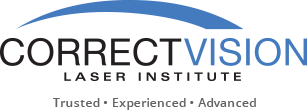5 Essential Facts to Know About Cataracts
A cataract is characterized by clouding of the lens of the eye. Lenses cloud when normal proteins begin to clump together and interfere with vision. Although often associated with aging, the condition may develop for many different reasons. Knowing the facts about cataracts can help you maintain lifelong eye health.
There are Many Causes
In addition to those related to age, there are several other types of cataracts:
• Congenital – a defect present at birth and worsening in childhood
• Radiation – the result of radiation exposure and subsequent cell damage
• Secondary – forming after surgery or because of another health condition
• Traumatic – due to a previous eye injury
Because of these other potential causes, it’s possible to experience clouded vision at any point in your life, and not just when you get older.
Lifestyle May Have an Impact
Smoking, poor dietary choices and long-term exposure to UV rays may cause damage resulting in a cataract. All of these factors can harm the cells within your body, and smoking, in particular, has a detrimental effect on the small blood vessels responsible for bringing nutrients to the eyes.
To promote better eye health and reduce your risk of developing any degenerative eye condition, take steps to quit smoking. Add more colorful fruits and vegetables to your diet to provide protective antioxidants, and invest in a good pair of sunglasses made to block 100 percent of UVA and UVB rays.
Not All Symptoms Point to the Same Condition
Common cataract symptoms include:
• A glare or “halo” around objects
• Clouded or blurry vision
• Decreased color intensity
• Diminishing night vision
• Double vision
However, one or more of these symptoms may manifest as the result of another condition. It’s important to get a checkup to determine the true underlying cause and get proper treatment.
Surgery Isn’t Always Necessary
If a cataract is detected during a routine eye checkup, you don’t necessarily need surgery. In fact, surgery may not be the best option if the cataract is mild. Sometimes all you need to improve your vision is better lighting and a new prescription for eyeglasses.
Since cataract surgery is performed by removing the damaged lens and replacing it with an artificial one, there is some degree of risk involved. Eye surgeons will usually recommend the procedure only if the affected lens is impairing your vision or interfering with the treatment of another eye condition.
A Cataract Won’t Come Back
Once you’ve had surgery to remove a cataract, it’s gone for good. The initial damage is completely removed, and there is no longer a natural lens in which new damage can occur. Some people experience some secondary clouding in surrounding tissues years later, but this is fairly simple to treat.
If you suspect you may be developing a cataract in one or both eyes, see your eye doctor for an exam. He or she can provide the information you need to choose the right treatment and suggest simple lifestyle changes to help manage the condition.
Want to learn more about your eye health?
CorrectVision Laser Institute is one of Florida’s most advanced practices for vision impairments with extensive experience in LASIK. Our goal is to open your eyes to the world of great vision by offering unparalleled expertise and the most advanced technology available.
Contact us today for a consultation with one of our South Florida eye specialists, located in Hollywood, Weston and Pembroke Pines!


